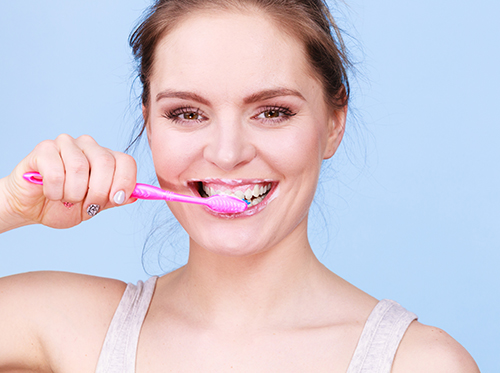What to do about Dry Mouth
February 22nd, 2017

Xerostomia, commonly known as dry mouth, is a condition in which the salivary glands in the mouth don’t produce enough saliva. Saliva keeps the mouth moist and cleanses it of bacteria. A lack of it makes for an uncomfortably dry mouth that is also more susceptible to infection and disease.
Symptoms of dry mouth include:
- Dryness or a sticky feeling
- Frequent thirst
- Burning sensations or redness in the throat or on the tongue
- A sore throat or hoarseness
- Difficulty chewing, swallowing, or tasting food
Dry mouth usually comes about as a side effect of certain medications or medical conditions, but can also be caused by damage to the salivary glands because of injury or surgery.
If you're experiencing any of the symptoms of dry mouth, here are a few tips for what to do:
Double-check medications: If you are taking any prescription or over-the-counter medications, speak with Dr. Stephen Hudis to see if any of these could be causing the dry mouth as a side effect.
There may be ways to alleviate the symptoms.
- Stay hydrated: Whether you have dry mouth or not, it’s essential to stay hydrated. Drink plenty of fresh and pure water throughout the day. A good rule of thumb is to drink eight eight-ounce glasses of water a day.
- Suck or chew on a natural, sugar-free candy or gum: Sucking on candy or chewing gum will keep your salivary glands producing saliva. Healthier versions of sugar-free candy and gum are available these days. Some are made with xylitol, a sugar alcohol that actually helps prevent tooth decay.
- Add moisture to your living spaces: Try adding a vaporizer to your bedroom or the rooms where you spend the most time. It’s best for your home to have a humidity level of between 40 to 50%. Anything less than 30% is too low. You can measure humidity with a hygrometer, which is easy to find at your local department store or online.
These are just a few general tips, but if you’re experiencing the symptoms of dry mouth often and it’s interfering with your life, pay a visit to our Princeton, NJ office. That way you’re more likely to get to the root of the problem.







